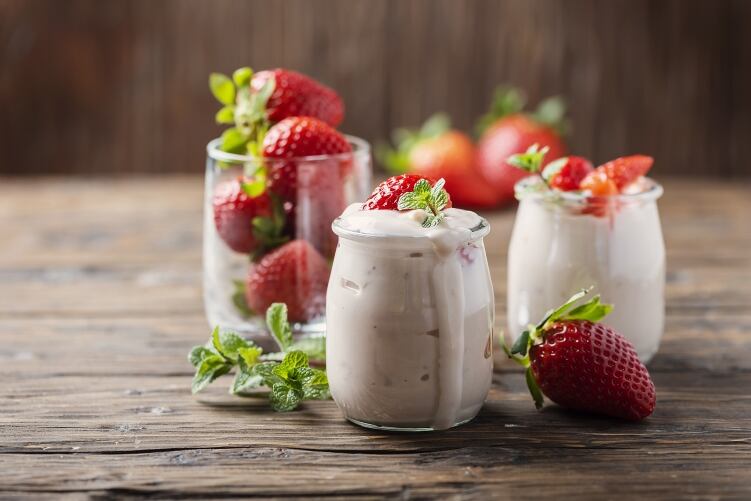The weekly shop can become a complicated affair when the focus is on buying foods for the nutritional needs of each family member. That’s the direction consumers are heading, according to Innova. To back it up, the market analysis specialist has pinpointed ‘Tailored to Fit’ as a top trend for 2021 – and it’s an open invitation to dairy innovation.
Many consumers already perceive fresh dairy products as healthy, giving dairy companies a well-primed starting point for tapping into the personalized nutrition opportunity. The key is to wrap nutritious ingredients in convenient products with high appeal and clear on-pack information. Most importantly, manufacturers must be up to date with the needs, beliefs and lifestyle of the individuals they target.
Insights into purchase drivers
To gain more detailed insights into these consumer expectations, a DuPont Nutrition & Biosciences survey investigated how certain target groups – millennials, families and seniors – perceive the yogurt category in particular.
Respondents in France, Germany and Russia answered questions about what drives their yogurt purchases. While the responses were roughly similar across countries, the differences between target groups were more clearly defined.
“The survey showed us that the health aspects of yogurt are most important to families and seniors, with seniors having the highest interest in the regulation of body functions, including digestion, immunity and weight. On the other hand, both millennials and seniors emphasized the energizing properties of yogurt in support of an active lifestyle,” said Eve Martinet-Bareau, global product manager at DuPont.
“Indulgence and comfort are the emotional benefits that resonate with all consumer groups – a reminder of what we have long known: that taste and texture are number one.”
Naturalness – and the best of two worlds
Consumers also characterized naturalness – a primary purchase driver for millennials and families – as an absence of additives, a short ingredient list and a relatively short shelf life.
“Another finding linked to that is the increased openness to plant-based fermented alternatives, which is driven by eco-consciousness among millennials in particular, and, in Germany, a certain degree of dairy skepticism. Nevertheless, plant-based alternatives are still regarded as that – an alternative – rather than a replacement in non-vegan diets. On that basis, flexitarians are likely to be open to hybrid products that bring together the best of the dairy and plant-based worlds,” Martinet-Bareau added.
Ingredient share of mind
From an ingredient perspective, consumers widely associate protein, fiber and probiotics with nutritional benefits in fermented dairy and non-dairy products. Families with children emphasize their expectation that such ingredients should be naturally present, rather than chemically added, and that perceived ‘baddies’ such as added sugar are kept to a minimum.
Kirsten Lauridsen, principal dairy application specialist at DuPont, said protein and calcium are still the nutrients most top of mind among yogurt consumers, while fiber is generally recognized for its contribution to digestive health. The survey reveals, however, less awareness of probiotics.
Credibility may also be undermined by yogurt formulations that combine probiotics with a high load of sugar and additives.
“Probiotic and dairy manufacturers have a clear communication task ahead of them here,” Lauridsen said.
“Although the European Union restricts the use of probiotic-related health claims, probiotics are widely marketed in many other regions of the world. Clinical studies of specific strains have provided substantial evidence of their ability to support digestive and immune health. More recent studies have even investigated probiotic strains for stress and anxiety management.”
Inspiration from five angles
The general view of yogurt as a healthy choice is an excellent foundation for personalized nutrition. To help new product development, the DuPont consumer survey asked participants for feedback on five concept samples targeted toward individual family members.
Each concept takes into account the individual’s anticipated needs and expectations – a smooth, no-sugar-added fruit-yogurt for the youngest, a fermented plant-based snack for the teenager, a high-fiber yogurt for grandma, and a high-protein skyr and drinking yogurt for mom and dad, respectively.
Those who explore them will find an array of ingredient combinations on display. That includes several probiotic strains, offering specific benefits for immunity, digestive health or weight management and tailored to the needs of each family member.
The concepts further feature a selection of dairy enzymes. A specialized lactase both facilitates sugar reduction and generates prebiotic fiber through the natural conversion of lactose. Another efficient lactase is present to reduce lactose to zero.
Texturizing dairy and plant-based cultures deliver the indulgent creamy quality consumers expect, with or without the support of pectin and other naturally sourced texturizers.
Lauridsen pointed out the ideas in the toolbox are only the tip of the iceberg. Colliding trends, such as plant-based, lactose-free and no-added sugar, are likely to continue broadening horizons on what is possible in the field of personalized nutrition.
She said this is good news for the growing number of consumers who seek convenient and tasty foods to match their needs and values.
This is also highly encouraging for dairy manufacturers with ambitions to build a pioneering brand – and the ability to communicate the benefits, Lauridsen concluded.




